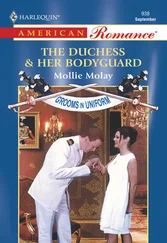When it was announced we were leaving, we were cheered out of the wardroom. And I suppose as Rufus said we had a story which could make us warm on cold nights and cool on hot nights. We had a tale which we could use to revive ourselves and other men. On the pier, which was conspicuously darker than it had been the night before, the Boss said that Pengulling, the fishing boat, was nearly ready. I was still willing to sail? he asked me.
Mortmain was smoking, he closed the eye behind the monocle. Can paddle, he said of me. Strong lad. Good humour. Rough manners. Why not?
But I was always coming, I insisted.
And they laughed. I thought to myself, Creed’s right. You can never exactly tell what the Poms are getting at.
How was the sex? asked my granddaughter Rachel, one time when she was a student in the late ’80s.
She meant in my life with Leo. She was always talking about and marvelling at my tales of Braidwood at the turn of the 1940s, the codes, the social restrictions, but she was also a clever girl and aware that she too was subject to codes, and that restrictions on people are a moveable feast. She was amused by the fact that in my day women had a duty to appear indifferent to sex and to treat it as a necessary evil, and that in hers women have a duty to be sexually fulfilled and satisfied.
So, How was the sex? she asks me.
It was very satisfactory, I told her, delighted to be prim.
Oh, she said amused, satisfactory. Very well.
In many ways I have never in my life been able to talk to anyone as freely as I have talked to this girl. This was a conversation I could not have had with Laurie Burden, my second husband. It’s still the way.
Rachel’s a museum curator in Brisbane now ( now being the early days of the twenty-first century), with three children and a husband, but when we meet even after a year’s separation, often at my son’s place at Christmas time, we simply begin again with the same level of mutual confidence.
Very satisfactory. That’s what I said. One weekend in that winter of 1943, when the wedding awaited some ordeal of arms I could only vaguely imagine, my mother came to my room and gave me a book in a brown paper cover. Her face was red, but obviously she felt she must perform this duty.
She said, Men think they are worldly, but often they’re not. They think they understand women, but no! Sometimes the wife has to educate them. Treated in the right spirit, that book will help you a lot.
It was a surprisingly weighty book. I found it as abashing to accept as she did to pass it to me. I started nonetheless to open the front cover.
No, my mother said. Wait till I’m gone.
I waited till ten seconds after she closed the door. The opened title-page read Sex Without Fear by one Samuel Aaron Lewin. It possessed the weight of a medical tome and was published in America, where – I presumed – life was racier. This book was revolutionary, I would later discover, in that it placed an onus of pleasure, and of educating husbands, on wives. It proposed that men were sexually primitive and that the wife must teach her spouse to seduce her, and that the husband be led to have in the forefront of his mind his wife’s delight. And it illustrated widely and clinically and without pornographic relish how that delight could be achieved, and counselled women to discuss these matters with their husbands, and not to be constrained by any artificial fear that their husbands would think them ‘pre-violated’. Where had my mother acquired this exceptional book? Did all the women of Braidwood possess a copy? I was thrilled and repelled by that idea. Obviously she must have got it on a visit to Sydney. She probably needed to have a medical prescription to buy it. Had my parents resorted to such hearty stimulations as the book recommended? I decided not to contemplate that.
I read the book on icy nights in Canberra with the acuity of an athlete absorbing the rules of a new, higher sport and getting ready for the contest. In the spirit of preparing the way for my lover, I engaged in solitary explorations, though they seemed a dim pre-echo of what might happen to me, once Leo’s test of war had earned the nuptials.
This was, I know now, the beginning of the golden time for Doucette and Mortmain and for Leo. And a study of dour government records is nonetheless full of hints of their mutual creativity and confidence in each other’s company. With the new engine aboard the Pengulling , Operation Cornflakes was a goer, a starter in the great planetary power stakes. The attack on Townsville had been a mere mock play. Now they were to be in the great theatre, and would become legendary even to themselves, blessed men. Alfred Tennyson provided the text for Doucette’s life with lines he could recite at parties.
…but something ere the end,
Some work of noble note, may yet be done.
That might have been the trouble. The men were living according to Tennyson, whereas Dotty, and soon I, were determined to live in the age of Auden and T. S. Eliot.
Pengulling would bring Doucette and Leo through seas of all colours, of abrasive tropic blue, through blinding golden sunsets and the bruisings of storm, to their work of noble note.
Despite all the planning, Doucette had to grab for a few extra people at the end – the only cook he could find was a malaria-prone veteran of fighting in New Guinea earlier in the year. It was appropriate to every odyssey that there be such flawed men. The navigator was flawed too – a wanderer and barely repentant alcoholic, already in his early forties, though gifted at his job. After an unhappy spate in the navy during World War I, he had spent the Depression in Queensland and New South Wales digging for opals along the New South Wales–Queensland border, or descending upon nineteenth-century gold-rush sites to rework the tailings and mullock with arsenic. For his brief World War I experience as a sailor in the Australian navy, upon re-enlisting for this new war he had been commissioned. The Independent Reconnaissance Department had chosen him, yet he had been through none of the training rigours of his young fellow crewmen. His name was Lieutenant Yewell, his nickname was Nav. I have seen his photograph and it’s a complex one. His face leathered by remote suns and in which the struggles with his demons were plainly written. Doucette tended to take a very positive attitude towards such men, an attitude that was good for them, and made them behave better than perhaps they were. He made heroes out of quality men like Mortmain and Leo, and a passable fellow out of the unredeemed Yewell assigned to the Pengulling purely because he knew tropic waters.
A jungle warfare specialist named Sergeant Pat Bantry, a hulking New South Wales farmer, was also brought on board and would be favoured, despite his bulk, by becoming Doucette’s forward hand for his folboat.
Pengulling cast off. Everything went cheerfully as it easily penetrated the dangerous coral reefs of the Torres Straits, and reached westwards through the Arafura and the Timor Seas, sighting peaceful Melville Island north of Darwin. Down the shoal coast of Western Australia they came to the American base at Exmouth Gulf, Potshot. All the way they practised on their silenced weaponry and by day kept their large Caucasian jaws and shoulders and hands under the awning. As for the routine, some men could sleep on the deck, unless there was bad weather and they could then sleep in the wheelhouse. The hold contained three officers’ bunks and a sophisticated radio run by batteries. The head, used by all ranks without distinction, was on deck in the stern. The galley and various cupboards were also there, and there were water tanks and a gravity tank to the engine which was used as a mess table. A tarpaulin covered much of the deck, and I know it was decided that only those who could pass as Asians would be in the open – Doucette, the boy terrier of an Irishman; Rubinsky, the olive-skinned Jewish rating from the Australian navy, and Nav himself.
Читать дальше












